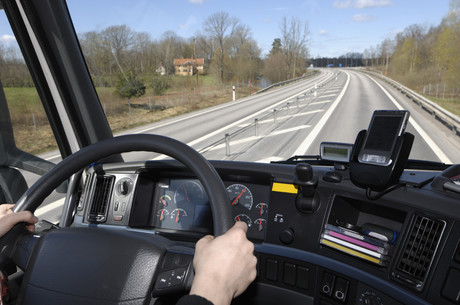3 ways fuel efficiency reduces your environmental footprint

Australian businesses are being urged to sharpen their focus on their environmental footprint in the lead-up to Earth Hour’s 10th birthday, taking place on 25 March.
For any organisation operating a fleet of vehicles, driving inefficiency out of their business at every given opportunity in order to ‘go green’ is a challenge. This is especially true for field-based businesses, whose largest areas of waste are severely impacting our environment — fuel consumption and paper-based reporting processes.
A fleet of vehicles typically runs on petrol or diesel, releasing harmful chemicals into the air. These emissions result in environmental degradation due to pollution. With fuel prices at the highest they’ve been in 18 months, and Earth Hour just around the corner, field-based businesses are under more pressure than ever before to control fuel usage and streamline operations.
With a GPS vehicle tracking system, you’re able to manage driver and vehicle behaviour, and optimise routes, to ensure fuel is being used as efficiently as possible. Not only will green fleet management reduce your carbon footprint, it’ll also drive fuel savings to help improve your bottom line:
1. Route optimisation
Don’t waste fuel dollars on needless kilometres. Taking the most efficient route to the job will save time, reduce carbon emissions and minimise unnecessary costs. Whether you’re managing a large transport fleet or a small number of service vehicles, route optimisation is the simplest way to do just that. With fleet management technology, you’re able to track the location of all drivers in real time. This enables you to identify and dispatch the closest driver to the job, as well as replay each driver’s route, to reduce unnecessary travel time and, in turn, fuel consumption.
Contact Electrical is a good example. Based in Tasmania, the electrical company was challenged with dispatching emergency jobs in a timely manner. It took calls to four or five different drivers to establish which driver was available and closest to the job site. After deploying fleet management technology across its vehicles, Contact Electrical has visibility into the location of each vehicle, which means jobs are assigned to the nearest vehicle in real time. On top of improving productivity, the technology has helped to reduce the amount of kilometres travelled, and cut fuel emissions.
2. Improve driver behaviour
Excessive idling wastes a significant amount of fuel, which isn’t uncommon in the field service industry. A driver might sit in the vehicle with the engine and air conditioning running if they arrive early to a job, which means valuable fuel, and time, is wasted. Drivers practising poor habits, such as speeding and harsh braking, are also burning fuel unnecessarily.
How can you address this? With GPS vehicle tracking, business owners can pull reports based on real-time data, which inform their understanding of driver behaviour. You’re able to target the necessary drivers with training, to improve behaviour and help eliminate fuel wastage.
Such was the case for Formway Group, a specialist provider of electricity metering hardware and services, based in Queensland. The organisation required a way to better monitor driver behaviour and reduce excessive stopping, speeding and idling. A GPS tracking system provides Formway Group with an accurate picture of how assets are being used, how drivers are performing and how operating costs are tracking. This increased visibility has improved the organisation’s financial and environmental sustainability — Formway Group has experienced a 5–10% reduction in fuel costs, which means less pollution in the air.
3. Consider alternative fuel or hybrid vehicles
New cars and innovative technology will enable fleet businesses to have the desired mobility without damaging the environment. Look for vehicles that have a higher mileage rating, which will reduce the use of petrol per mile that the car travels. Vehicles that run on alternative energy offer another solution — hybrid vehicles, for instance, are another form of cleaner transportation as they produce lower emissions than traditional petrol- or diesel-powered vehicles.
And as Earth Hour fast approaches, field-based businesses can do their part by addressing fuel efficiency. This will help reduce your carbon footprint and improve the environmental sustainability of your business, not to mention, cut thousands of dollars off your bills. Now is the time to get your business involved in climate change.
Solar cell achieves world record for efficiency
University of Queensland researchers have set a world record for solar cell efficiency with...
Boral secures grant for cement kiln carbon reduction
The project will reduce process emissions from cement clinker manufacturing by up to...
Vast secures grant to progress SA Solar Fuels project
HyFuel Solar Refinery, a subsidiary of Vast, has been awarded $700,000 through the ASLET...










